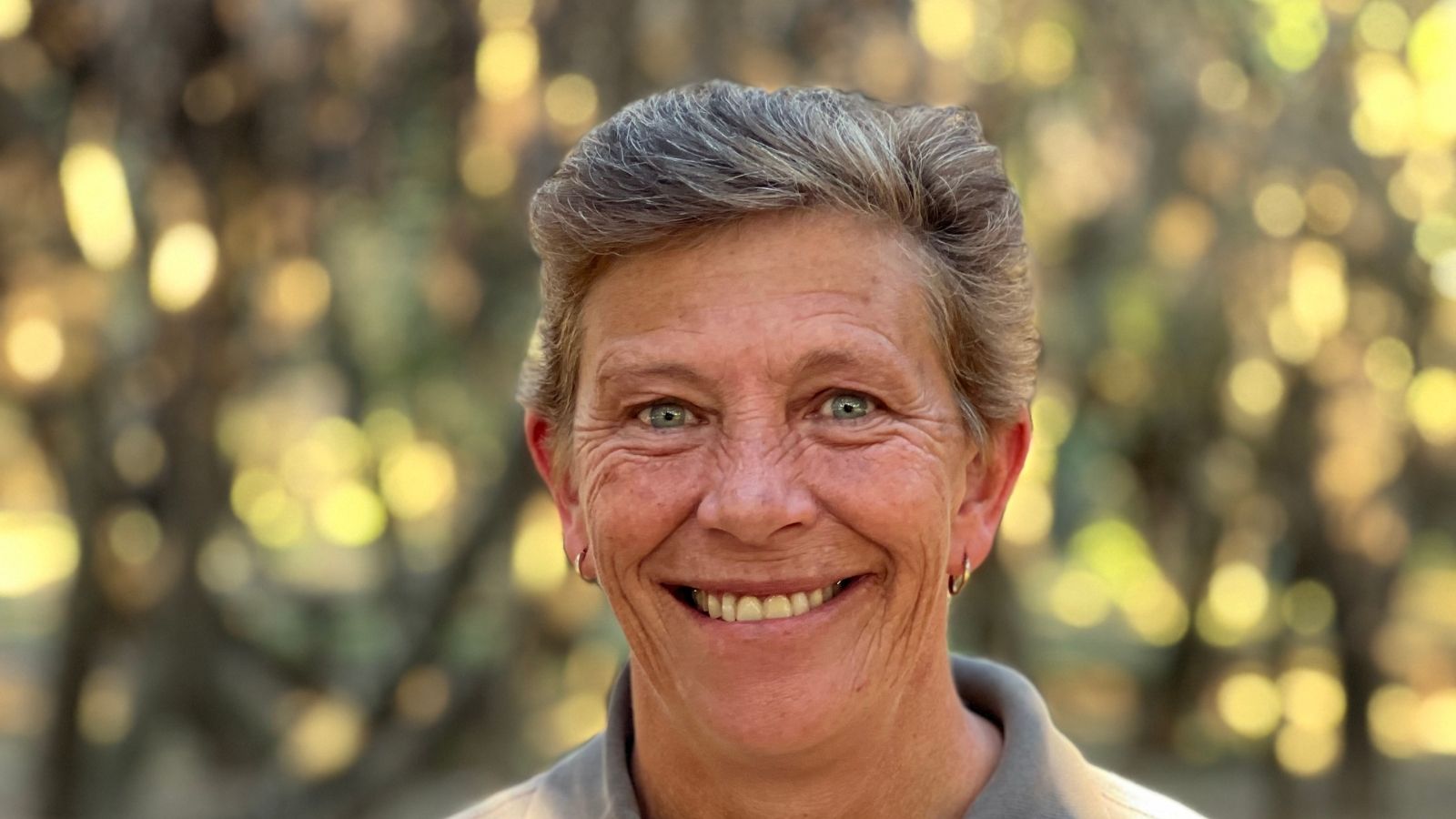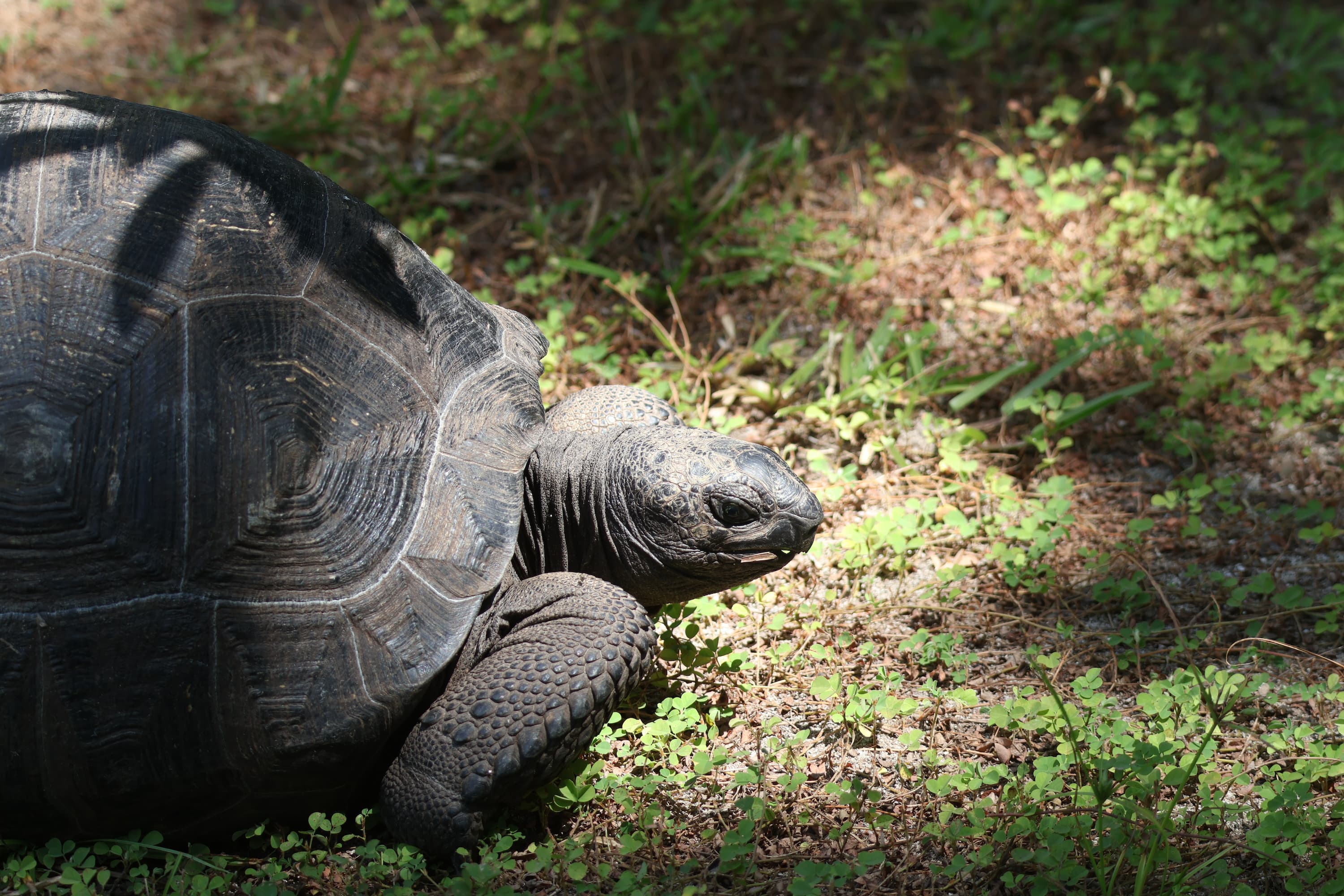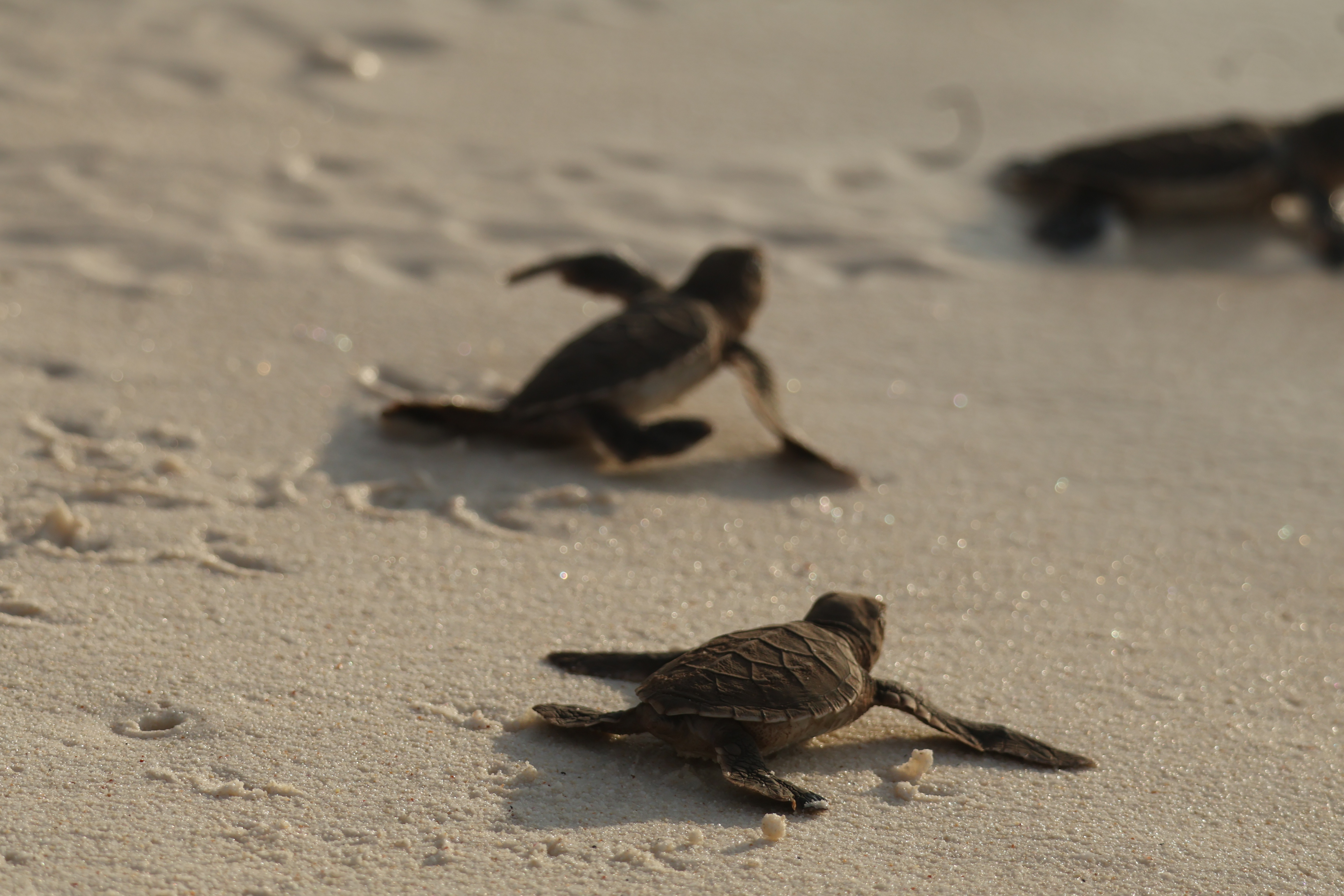Volunteering in marine conservation provides a rare opportunity to make a measurable contribution to protecting global biodiversity. One of the most profound ways to do this is by supporting sea turtle conservation in Seychelles through Wildlife ACT’s North Island programme. This guide offers everything you need to know about volunteering for sea turtle conservation in Seychelles, from what the programme involves and why it matters to how to prepare, apply, and what to expect during your stay.
Discover North Island and Why It Matters
North Island was once a coconut plantation but has been transformed through the Noah’s Ark restoration project into a conservation sanctuary. Non-native plants and animals were removed, indigenous seedlings were nurtured in on-site nurseries, and endemic species such as the Aldabra Giant Tortoise were reintroduced. Today, this island serves as a sanctuary for critically endangered species and a model for marine and terrestrial restoration.
The transformation of North Island reflects the power of long-term conservation work. Every section of restored forest, each tortoise reintroduced, and every turtle nest monitored contributes to reversing damage caused by decades of exploitation and invasive species. Unlike larger national parks or urban-based projects, North Island offers a rare, immersive opportunity to engage with conservation in an isolated, wild setting, where the impact of each task is visible and meaningful.

The Role of Sea Turtle Monitoring
Green and Hawksbill turtles nest throughout various seasons on North Island beaches. Volunteers are involved in marking and monitoring turtle populations, including daily and night beach patrols, tagging individuals when needed, and excavating old nests to conduct shell counts. This monitoring contributes critical data on nesting success, hatchling emergence, and broader marine conservation goals.
These contributions support not only North Island’s local ecosystem but also regional sea turtle conservation. Hawksbill Turtles are listed as Critically Endangered on the IUCN Red List, and nesting populations are under threat due to habitat loss, marine pollution, illegal harvesting, and climate change. Consistent, accurate monitoring across multiple years provides essential data to track nesting trends and inform global conservation policy. On North Island, volunteers play a direct role in gathering that data.

Marine and Coastal Conservation Work
Sea turtle work is part of a wider marine conservation effort, which also includes snorkel-based data collection of reef fish and corals, and removal and cataloguing of marine debris. Volunteers assist in photographing marine life, noting species presence and abundance. This information feeds into a long-term monitoring database to assess reef health over time.
Beach clean-ups are a regular part of the programme. Marine litter is not only unsightly but poses a direct threat to nesting turtles and hatchlings. Plastics and synthetic materials can obstruct nesting or entangle wildlife. Volunteers help document and remove marine debris, contributing their findings to global pollution studies while ensuring the nesting environment remains suitable for returning turtles.

A Day in the Life on North Island
Volunteers stay in a shared two-bedroom cottage near the beach, fitted with air conditioning. Your day begins early with either turtle patrols or habitat restoration. During the morning and afternoon, you may work in the tree nursery, plant indigenous seedlings, help clear invasive coconut saplings, or assist with reef or beach data collection. One full rest day per week allows volunteers time for snorkeling, kayaking, cycling, or beach relaxation.
Life on North Island balances physical fieldwork with quiet moments of reflection. Volunteers often describe a renewed sense of purpose as they disconnect from busy routines and focus on the natural world. The small group size creates a strong sense of community. Shared meals, debriefs, and team coordination foster friendships and a supportive environment for learning.
Meals are served buffet-style in a communal canteen, offering meats, fish, rice, fresh vegetables from the Island's organic garden, and some vegetarian options. A small island shop is open periodically for snacks and basic supplies. Sustainability practices such as waste sorting are in place throughout the camp, encouraging everyone to contribute to low-impact living. A small island shop opens periodically for snacks and basic supplies.

Living Conditions and Logistics
Once accepted into the programme, volunteers receive a Letter of Invitation and accommodation confirmation to support their Seychelles travel authorisation. Volunteers are responsible for booking their flights to Mahé Island, where their journey to North Island begins.
Upon arrival at Seychelles International Airport, volunteers are met by a pre-arranged taxi service organised by North Island staff. This transport takes them to their overnight accommodation on Mahé. We recommend staying at either The Ridge Residence or Hilltop Boutique Hotel, as both are within the pick-up range of the scheduled transfer the following morning. Volunteers who choose other accommodations may need to arrange their own transport to the harbour. Local SIM cards can be purchased at the airport for mobile connectivity during your stay.


The following morning, the same taxi service collects volunteers and transfers them to Marine Charter Harbour. Here, they board the staff boat Elle, which departs for North Island every Monday at 08:30. The crossing offers stunning ocean views and marks the final leg of the journey to one of Seychelles’ most remote conservation sanctuaries.
When the programme ends, Elle returns volunteers to Mahé’s Marine Charter Harbour on a Friday. The same pre-arranged taxi service will be waiting to take volunteers either to their chosen accommodation for the night or directly to the airport, depending on flight times.
We assist every volunteer with logistics planning and are available throughout the booking and pre-travel process to ensure a smooth and stress-free transition from arrival to island life.
Conservation Efforts Beyond Turtles
Volunteers also support marking and monitoring the Aldabra Giant Tortoise population. Tasks include finding and recording GPS locations of tortoises and monitoring growth rates of juvenile tortoises in pen enclosures. These gentle giants are crucial to the ecosystem, acting as natural gardeners by dispersing seeds and grazing on invasive plants.

The team also conducts habitat restoration work, including removing invasive vegetation like coconut seedlings, cultivating native seedlings in the nursery, and planting indigenous flora. These efforts enhance biodiversity and improve the structure and health of the island's ecosystem, providing better nesting habitats for sea turtles and refuge for a wide range of species.
Additionally, volunteers help with beach profiling to monitor sand movement on North Island’s three beaches. Photographs and measurements are recorded over time to inform beach management strategies that also benefit turtle nesting.

The Impact of the Noah’s Ark Project
The Noah’s Ark Project began in 1997 following the acquisition of North Island by Wilderness Safaris. Since then, intensive conservation efforts have returned the island to its original state. Invasive species were removed, thousands of endemic plants were replanted, and key species, including tortoises and marine wildlife, were reintroduced.
The island has received multiple prestigious awards, including the National Geographic World Legacy Award for Conserving the Natural World and the Seychelles Energy Globe Award. North Island is now widely recognised as one of the most ambitious and successful private island restoration projects in the Indian Ocean. It is regularly cited as a model for how ecotourism and conservation can work hand-in-hand, when supported by dedicated science and on-the-ground effort.

What to Expect from the Volunteer Programme
Marine conservation volunteer sessions are available year-round and typically last four to eight weeks. Each session accepts a maximum of four volunteers to ensure focused work and high-quality engagement.
Marine conservation volunteer sessions on North Island are available year-round and typically last between four and eight weeks. Each session is limited to a maximum of four volunteers to ensure a focused, hands-on experience and high-quality engagement.
Volunteers should be in good physical condition and prepared to walk up to five kilometres per day across sandy and sometimes hilly terrain. Daily activities include turtle patrols, beach profiling, invasive vegetation clearing, and nursery maintenance. While no prior conservation experience is required, qualities such as enthusiasm, self-discipline, patience, and the ability to work well in a close-knit team are essential.
Volunteers come from a wide range of backgrounds — from students and professionals in conservation, biology, and environmental science, to individuals on gap years, career breaks, or purpose-driven holidays. Whether you're exploring a new path or reconnecting with nature and meaningful work, the programme offers an immersive and impactful experience.

The programme includes shared accommodation, all meals, boat transfers to and from North Island, and full participation in conservation activities. Flights to Seychelles and travel insurance must be arranged independently.
How to Apply
To apply, visit the Marine Conservation Volunteering page. Complete the volunteer form with your preferred dates and submit your application. Accepted applicants receive a Letter of Invitation and more detailed travel and packing guidance. Early booking is advised because slots fill quickly due to the programme’s limited capacity.
If you have questions about the programme, the Wildlife ACT team is available to help you decide whether the opportunity is right for you. They provide guidance on flights, packing, insurance, and pre-travel preparations.

Why This Programme Matters
The North Island programme combines scientific monitoring, habitat restoration, and marine conservation in a unique setting. Volunteers make direct contributions to important datasets, tracking sea turtle nesting success, reef health, tortoise population trends, and beach movement patterns. With its award-winning restoration model, North Island provides volunteers with the chance to participate in globally recognised conservation efforts.
By volunteering with Wildlife ACT, you will gain real-world conservation experience, learn practical field techniques, and form part of a small, dedicated team working to protect Seychellois wildlife. Your contribution will support the long-term recovery of endangered species and habitats, making a lasting impact.
Final Words
Volunteering for sea turtle conservation in Seychelles is more than a memorable experience. It is an opportunity to live with purpose, take part in a genuine scientific project, and contribute to the rehabilitation of a once-degraded island ecosystem. If you want to protect sea turtles, support habitat restoration, and contribute to a leading conservation initiative, now is the time to apply through Wildlife ACT’s North Island programme.




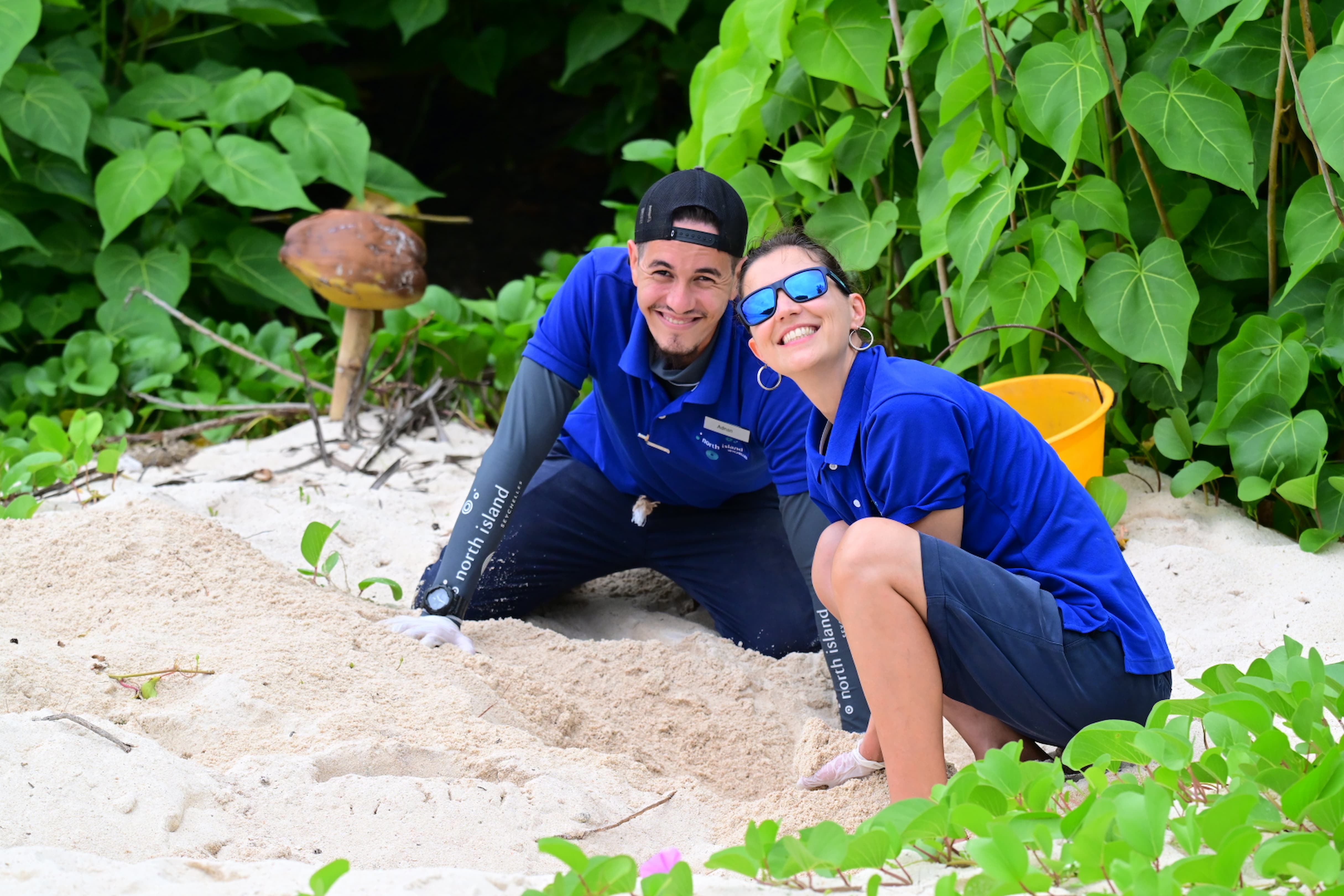
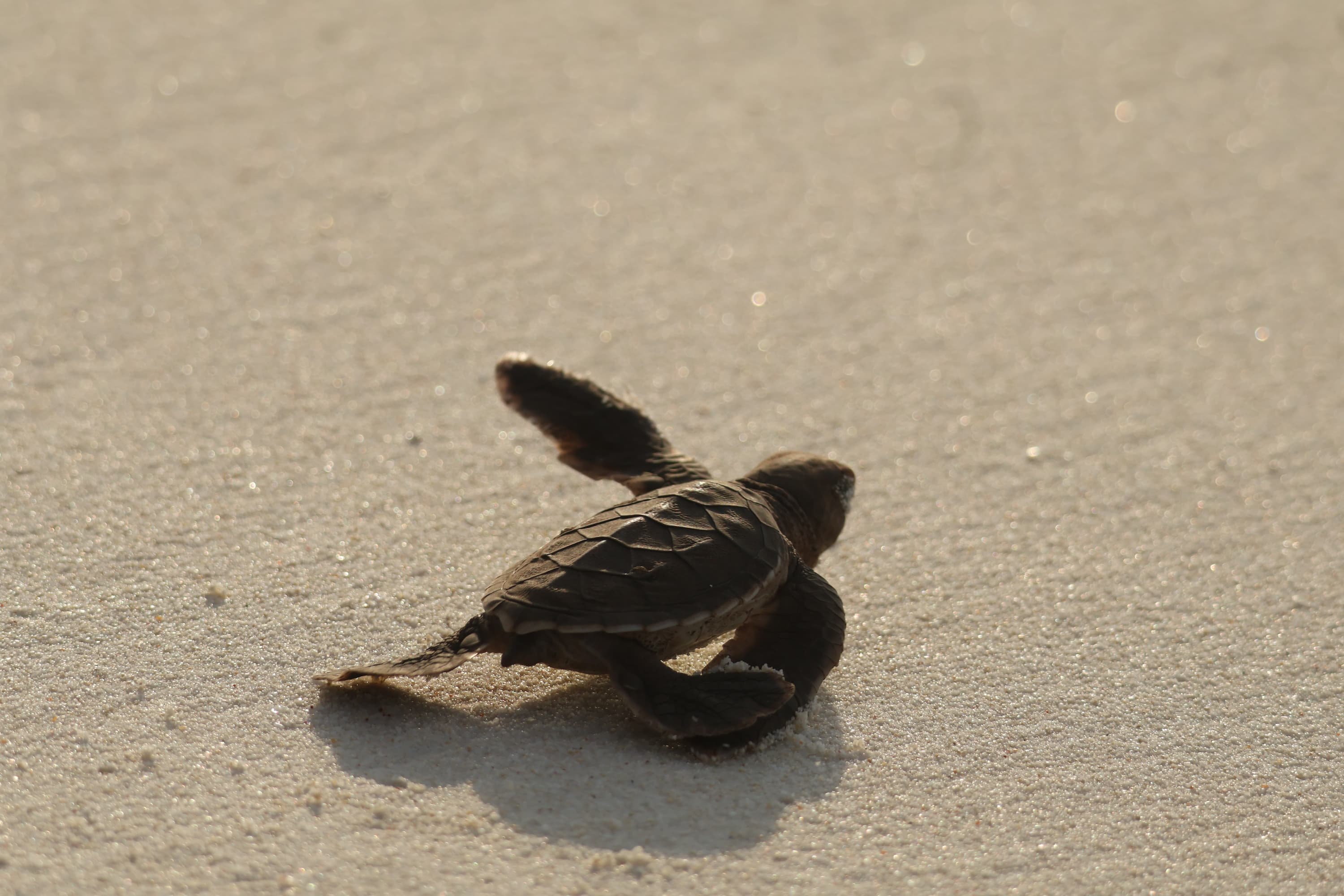
.jpg)
